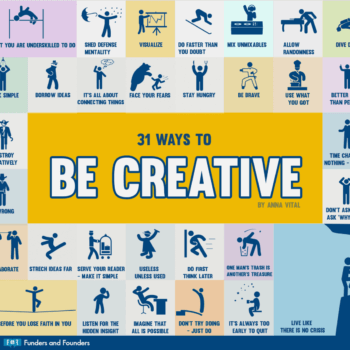Collision Conference, InnovFest unBound, almost any tech/investor conference in Silicon Valley and California’s neighboring states, and your 21-year-old nephew. They are all startup-ing. This term is synonymous with low pay, no pay, long hours, lots of tech and jargon like pivot, MVP, and Split testing. It is the dream to be the next Facebook, Twitter, Snapchat. Create a new disruptive technology company like Uber and GrabTaxi, take underutilized resources and maximize them and sell, sell, sell and be rich before 35. Hell, 53 if you are a second-career implant. Just live the dream and make it a reality. Mark Zuckerberg did, right?
Before a startup team gets to wake up from the dream to a reality of wealth, they actually are living a dream. They create a product or service in their imagination, get some money together to make it in the real world, and test their market to see if it takes off. They tell friends and family they are a startup and they hang out with other startups in co-working spaces around the world, learning about seed funding and networking. The startup dream is the dream answer to the corporate rat race nightmare, the dream answer to how not to be a corporate slave. This time, you impose your own slavehood on yourself, and because you love what you do, it’s OK not to earn enough money to make ends meet. People understand.
Initial naysayers and possible killers of the dream are your family, who think you’ve lost your mind giving up the Fortune 500 job to wear your PJs and work from home and speak to your virtual assistant team in India. Mom gives you a reassuring pat on the back, but on the side goes on and on to your sister, aunt and grandmother about how worried she is and hopes you give up all this craziness. Dad gives you a worried furrow as he heads off to his job of 21 years. He grunts when you try to explain to him what you are doing. Those with wives who love you now find their patience worn thin. They remind you about the kids – furry and genetic that also need daddy’s attention when you work 24/7 with a coffee cup over your desk.
Then come the other startup founders. The ones who crashed and burned. They bring back horror stories of the investors who stole ideas from them or the partners who just become lazy and too difficult to work with. They want your dream to die because theirs did.
The consultants and potential investors are next. They tell you all the things you are doing wrong and stress you out with impossible deadlines for the next revision or you are out.
Having just been at one startup conference where thousands of startups paraded their dreams to potential investors, I am not surprised how strongly and passionately they tell their vision of the better world, after all the times their dream were challenged time and time again. I am, however, horrified that some of them actually believe their product is great when it is not. Good, yes; helpful, maybe; essential to life and death; no; going to revolutionize their industry – highly doubtful.
I hold myself back from commenting. Not wanting to be the killer of anyone’s dream. However, my business acumen reminds me that if not I, then someone else soon will kill it for them. Their market will be too small, costs too high or political agendas will stop them from taking those next steps.
Should we kill their dreams? Do they have to learn from them to come back with a better startup idea? Or Implementation?
Perhaps all they really want is to live the startup dream. It’s sexy now.
But a startup does have to also grow-up to take it from dream into reality.





























